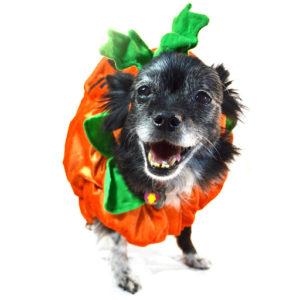What to Do If Your Dog Eats Rat Poison
If you suspect your dog may have eaten rat poison, take them to the closest emergency veterinarian right away. Rat poison is highly toxic to dogs and must be treated immediately.

As a responsible pet owner, you must take many precautions to ensure the safety and wellbeing of your furry friend. However, accidents can still happen, especially when a dog door gives your dog the freedom to go outside without supervision. Dogs are naturally curious, and there is a chance that your dog can ingest rat poison.
Rat poison is commonly used to control rodents in homes and outdoor areas, but it can also pose a severe health risk to dogs if ingested. Therefore, it is essential to know the signs of rat poisoning in dogs and what steps to take immediately if you suspect your dog has consumed rat poison.
What Is Rat Poison & Why Is Rat Poison Dangerous For Dogs?
The chemicals used in rat poison can cause internal bleeding, kidney failure, organ damage, or death. In order to determine the proper course of treatment, your vet will likely want to know the following:
- Time of consumption (if known)
- Your dog's weight
- Brand name of rat poison consumed
- Active ingredients
- Package size & how much is missing if not all
If you can, bring the packaging of the rodenticide with you so your vet can decide on the proper treatment. There are a few kinds of rat poison each with different active ingredients:
- Anticoagulant: prevents blood from clotting causing internal bleeding.
- Cholecalciferol: causes severe, acute kidney failure.
- Bromethalin: causes brain swelling.
- Zinc & aluminum phosphides: release phosphine gas in the stomach.
What Are The Symptoms Of Rat Poisoning In Dogs?
Dogs are notorious for eating everything from grass to cat poop. This can make it tricky to prevent your dog from eating harmful substances like rat poisoning.
A dog can even suffer from rat poisoning if they ate a rat that ingested rodenticide. It’s important to know the common symptoms so that you can determine if your dog may have ingested rat poison:
- Nose bleeds
- Vomiting or coughing up blood
- Difficulty breathing
- Bruising
- Bleeding gums
- Weakness
- Lethargy
- Bloody stools
- Tremors
- Ataxia
- Stiff forelegs
- Loss of balance
- Hind limb weakness

How Is Rat Poisoning In Dogs Treated?
The treatment will depend on the active ingredient in the poison that was ingested. It is very important to determine the type of poison ingested is possible.
For most active ingredients, treatment includes induced vomiting and administering activated charcoal to minimize the concentration of poison in the system.
After vomiting is induced, the treatment will vary depending on the type of poison consumed. The dog will typically stay at the vet for monitoring for 1-7 days following the initial treatment.
Early diagnosis and immediate treatment are crucial when dealing with rat poisoning. If you have a dog, it’s best to consider alternative forms of pest control such as traps that do not use rodenticide especially if they have a pet door.




